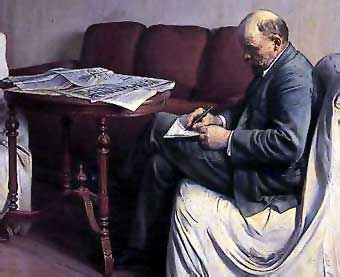Gus Hall, the former Marxist-Leninist leader of the Communist Party USA, said that the former Soviet Union was a society where workers had power. Gus Hall considered the Soviet Union as "the most powerful, successful and influential socialist society." He explained the Russian Socialist Revolution in a few words. "In 1917," Hall writes, "the working class of the Soviet Union decided they didn't need the owners who were getting richer while the people got poorer. In fact it was just this class of leeches that held back all social advances for working people. So the working people took over." (Gus Hall, "Where Workers Have Power," Working Class USA, 1987, International Publishers)
William Z. Foster, the Marxist-Leninist leader of the Communist Party USA preceding Hall, pointed out that "the Communist Party (was) the brain and heart and nerves of the Russian Revolution, and so it must be in any proletarian revolution." (William Z. Foster, Toward Soviet America, 1932, International Publishers)
And the ruling capitalist classes of the world freaked out! V.I. Lenin, great Communist leader of the Russian 1917 Socialist Revolution, answered their capitalist slanders of the Soviet Union eloquently. V.I. Lenin said: "for every hundred mistakes which we commit and which the bourgeoisie and their lackeys are dinning into the ears of the world, ten thousand great and heroic deeds are performed." (Lenin, Letter to American Workers, 1918)
In his book, Working Class USA, the American Communist Gus Hall exposes the capitalist lies about the Soviet Union. The former USSR was a society where, Gus Hall stated, "workers (had) power." John Eaton, in Political Economy, notes that: "Socialism is planned production for use on the basis of public ownership of the means of production." Leontyev said that "the building of socialism begins only after state power passes from the hands of the bourgeoisie into the hands of the working class." And socialism in the former USSR, Gus Hall wrote in an essay entitled "Where Workers (Had) Power," brought free education, medical and dental care. Employment was guaranteed and workers were the majority on all government bodies. The socialist economy guaranteed that there was no economic crisis or corporate capitalist profit. Racism and discrimination were outlawed as criminal offenses. Unions were a valued part of socialist society. There had been no unemployment in the Soviet Union since 1930. And all profits from production went to funds to provide for the mass welfare, paid vacations and housing for the Soviet people. (Gus Hall, "Where Workers Have Power," Working Class USA, 1987, International Publishers)

(V.I. Lenin: 'for every hundred mistakes which we commit and which the bourgeoisie and their lackeys are dinning into the ears of the world, ten thousand great and heroic deeds are performed.')
Karl Marx and Frederick Engels taught that communist society had two phases. Socialism, which Karl Marx referred to as "the first phase of communist society" is a transitional stage to highly developed communism, "a higher phase of communist society," where there is a classless social system and full social equality of all members of society. (Marx, Critique of the Gotha Programme, 1875)
And socialism, "the first phase of communist society," in the former Soviet Union brought enormous gains to the working class. Gus Hall explained that the working class and unions, not the capitalists, called the shots in the former Soviet Union and socialist countries. "In the socialist countries," Gus Hall said, "workers are their own bosses. They are the real economic and political power. There is no drive for maximum private profits, there are no privately-owned corporations, and no tax shelters inducing companies to close plants and move to more profitable locations leaving human devastation in their wake...
"The basic truth is that it is only in a socialist society that trade unions acquire real political and economic power because they work, speak and act for the class in power--the working class...Under socialism people come first and profits are made to serve them." (Gus Hall, "Where Workers Have Power," Working Class USA, 1987, International Publishers)
William Z. Foster correctly said that "In a world thrown into deepening disorder and demoralization caused by the growing general crisis (of capitalism), the superiority of the system of planned socialist economy stands out like a great mountain!" (William Z. Foster, Toward Soviet America, 1932, International Publishers)
And V.I. Lenin was absolutely right that, with the birth of the Soviet Union, "a new era in world history has begun!" (Lenin, The Third International and It's Place In History, 1919)
Superb Books:
Daily Worker Labor Editor and Moscow Correspondent, George Morris, wrote Where Human Rights are Real.
Victor Perlo's excellent text Dynamic Stability: the Soviet Economy Today cited the 1977 Soviet Constitution.



